Dubai and Abu Dhabi are two of the most sought-after destinations in the world, known for their luxurious lifestyle, stunning architecture, and year-round sunshine. However, with the scorching heat and relentless sun, it’s essential to protect your skin to avoid sunburn and skin damage with Dubai sunscreen. With so many options on the market, it can be challenging to know which sunscreens are best for the harsh sun in Dubai and Abu Dhabi. In this article, we’ll take a closer look at some of the top sunscreens to keep your skin protected, no matter how long you’re spending in the sun. Whether you’re hitting the beach, exploring the city, or just lounging by the pool, make sure you have the right sunscreen for your skin type and needs. Get ready to protect your skin and soak up the sun safely in Dubai and Abu Dhabi!
Table of Contents
Best sunscreen for Dubai
Dubai is known for its hot and sunny weather, making it the perfect destination for sun-seekers looking to escape the cold. However, with so much time spent in the sun, it’s crucial to protect your skin from harmful UV rays. With a wide range of sunscreens available, it can be challenging to determine which one is the best for the harsh sun in Dubai. That’s why we’ve put together a comprehensive guide on the Best Sunscreen for Dubai.
Best sunscreens for Dubai in summer

The best sunscreens to use in Dubai during summer are those with high SPF (Sun Protection Factor) to provide maximum protection against the strong sun rays. Some popular options include:
- NIVEA SUN Protect & Moisture Sun Spray SPF50: This sunscreen provides protection against both UVA and UVB rays and has a moisturizing effect to keep skin hydrated.
- Garnier Ambre Solaire Sensitive Hypoallergenic Sun Cream SPF 50+: This is a good choice for people with sensitive skin as it is hypoallergenic and gentle on the skin. It provides high protection against the sun’s rays.
- Neutrogena Clear Face Liquid Lotion Sunscreen for Acne-Prone Skin, Broad Spectrum SPF 50: This sunscreen is specifically designed for acne-prone skin and is non-comedogenic, meaning it won’t clog pores. It provides broad-spectrum protection against the sun’s harmful rays.
It’s important to reapply sunscreen regularly, especially after swimming or sweating, to ensure continuous protection.
Best sunscreens for Dubai in winter
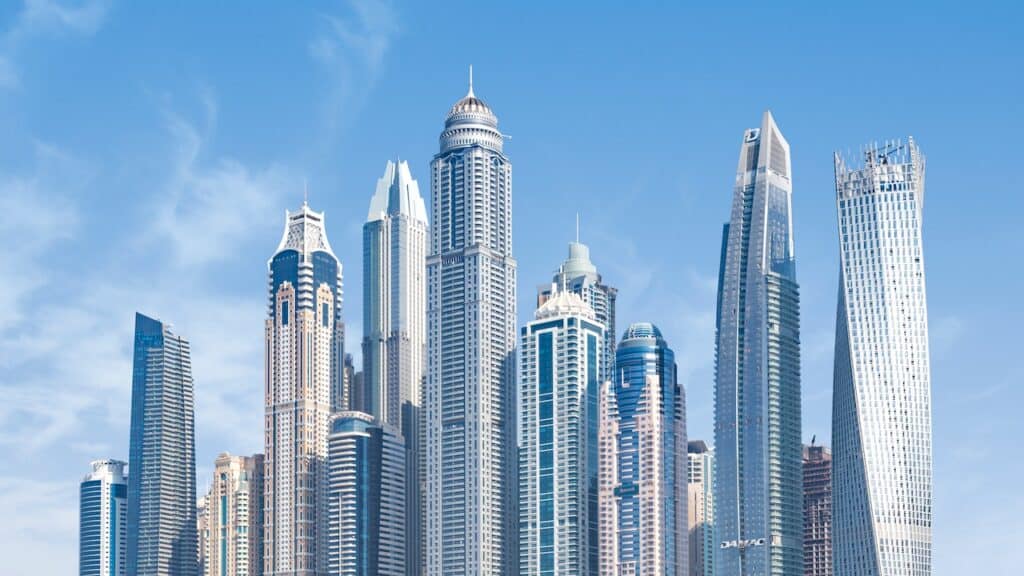
The best sunscreens for Dubai in winter are those that provide adequate protection against the sun’s rays, while also moisturizing the skin during the drier winter months. Some popular options include:
- Australian Gold – Instant Sunscreen Spray SPF 30: This quick-drying spray provides fast and convenient protection against UVA and UVB rays.
- Malibu Continuous Spray Dry Oil SPF 30: This dry oil sunscreen is easy to apply and provides a nourishing and moisturizing effect, perfect for the dry winter weather.
- RoC – Soleil-Protect Moisturizing Spray Lotion SPF 30: This lightweight spray is enriched with moisturizing ingredients to keep skin hydrated and protected from the sun’s harmful rays.
Regardless of the time of year, it is important to use a sunscreen with a high SPF, and reapply regularly, to protect your skin from the harmful effects of the sun.
Best Dubai sunscreen for the face
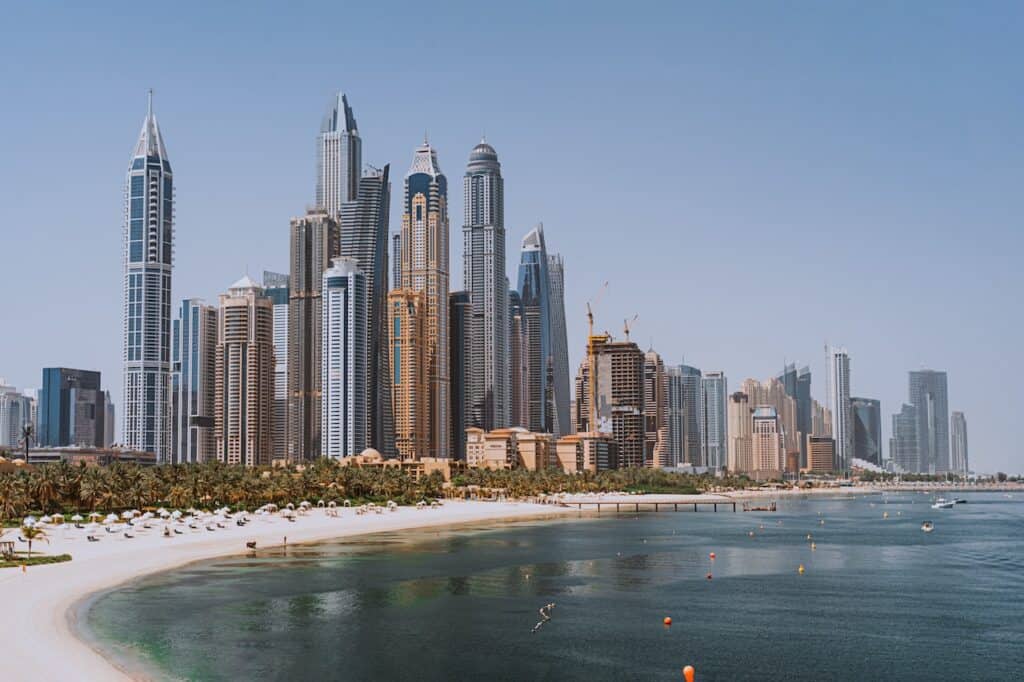
When choosing a sunscreen for the face, it’s important to look for products that are lightweight, non-comedogenic, and provide adequate protection against the sun’s harmful rays. Some popular options for use in Dubai include:
- NIVEA UV Face Shine Control SPF50: This lightweight sunscreen provides protection against UVA and UVB rays while also controlling shine, making it ideal for oily or combination skin.
- Murad Environmental Shield City Skin Age Defense Broad Spectrum SPF 50: This sunscreen provides broad-spectrum protection against environmental stressors, including sun damage, and helps to reduce the appearance of fine lines and wrinkles.
- REN Clean Skincare Clean Screen Mineral Mattifying Face Sunscreen for Sensitive Skin SPF 30: This mineral sunscreen is suitable for sensitive skin and provides a matte finish, making it ideal for those with oily skin. It is also free of skin-irritating ingredients.
Regardless of the type of sunscreen you choose, it is important to apply it every day, especially when spending time outdoors, to protect your skin from the harmful effects of the sun.
Best sunscreen for kids in Dubai
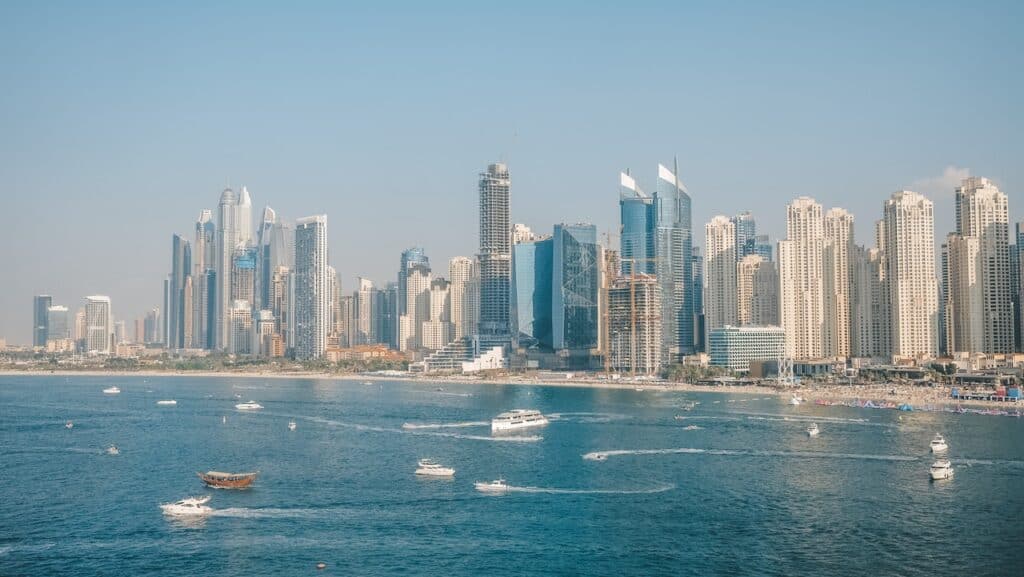
When choosing a sunscreen for kids, it’s important to look for products that are gentle, non-irritating, and provide adequate protection against the sun’s harmful rays. Some popular options specifically formulated for kids and suitable for use in Dubai include:
- ISDIN Wet Skin Pediatrics Sunscreen Transparent Spray: This lightweight, transparent spray is gentle on delicate skin and provides broad-spectrum protection against the sun’s harmful rays. My husband and I are big fans of ISDIN products and would recommend them wholeheartedly.
- Childs Farm Kids and Baby Sun Cream SPF 50+: This gentle sun cream is suitable for sensitive skin and provides high protection against the sun’s harmful rays. It is also free of skin-irritating ingredients.
- NIVEA SUN Kids Protect & Care Caring Roll-On SPF50: This roll-on sunscreen is easy to apply and provides gentle protection against the sun’s harmful rays. It is also enriched with nourishing ingredients to keep skin hydrated.
Best Dubai sunscreen for tanning

If you’re looking to achieve a beautiful, natural-looking tan while also protecting your skin from the sun in Dubai, there are several great sunscreens to choose from. Some of the best Dubai sunscreens for tanning include:
- NIVEA SUN Protect & Bronze Sun Spray Oil: This lightweight, non-greasy sunscreen oil provides broad-spectrum protection against UVA and UVB rays while also helping to enhance your natural tan. Its quick-absorbing formula is easy to apply, and it leaves your skin feeling moisturized and protected.
- Malibu Sun SPF 50 Non-Greasy Dry Oil Spray for Tanning: This non-greasy spray sunscreen is perfect for those who want to achieve a golden tan while also keeping their skin protected. Its quick-drying formula is easy to apply, and it provides broad-spectrum protection against UVA and UVB rays.
- Piz Buin Moisturising Sun Lotion SPF30: This nourishing sun lotion not only protects your skin from the sun but also helps to keep it hydrated and soft. Its gradual tanning formula helps you achieve a natural-looking tan over time, and its broad-spectrum protection against UVA and UVB rays keeps your skin safe and protected.
Best sunblock that doesn’t leave white residue
If you’re looking for a sunblock that will protect your skin from the harsh sun in Dubai without leaving a white residue, there are several excellent options to choose from. Some of the best sunblocks that won’t leave a white residue include:
- Neutrogena Ultra Sheer Broad Spectrum Sunscreen SPF 70: This lightweight, fast-absorbing sunscreen provides broad-spectrum protection against UVA and UVB rays while also feeling invisible on your skin. Its non-greasy formula won’t leave a white residue, and it’s perfect for all skin types.
- Heliocare Ultra 90 Cream SPF50+: This advanced sunblock cream provides ultra-high protection against UVA, UVB, and infrared rays. Its non-greasy formula is quickly absorbed into the skin, leaving no white residue, and its hydrating formula helps keep your skin soft and smooth.
- RITUALS Sun Protection Spray SPF 50 from The Ritual of Karma: This refreshing sun protection spray is perfect for those who want a quick and easy way to protect their skin from the sun. Its non-greasy formula is quickly absorbed into the skin, and its broad-spectrum protection against UVA and UVB rays helps keep your skin safe and protected, without leaving a white residue.
Best sunscreen without avobenzone
If you are looking for a sunscreen that does not contain Avobenzone, there are several options that are still highly effective in protecting your skin from the sun. Avobenzone is a commonly used ingredient in sunscreens, but some people may prefer to avoid it due to potential skin irritation or other concerns.
Three of the best sunscreens without Avobenzone include:
- La Roche-Posay Anthelios Shaka Fluid Invisible SPF50+: This lightweight, non-greasy sunscreen provides high protection against UV rays and is suitable for sensitive skin.
- Eclat Mineral Sunscreen SPF50: This mineral-based sunscreen is free from chemicals and fragrances, making it a great choice for those with sensitive skin. It provides broad-spectrum protection and is water-resistant for up to 80 minutes.
- Neutrogena Beach Defense Sunscreen Stick: This convenient, easy-to-apply stick is perfect for on-the-go sun protection. It contains no Avobenzone, and provides water-resistant protection against UVA and UVB rays.
Best sunscreen that stays for 8 hours
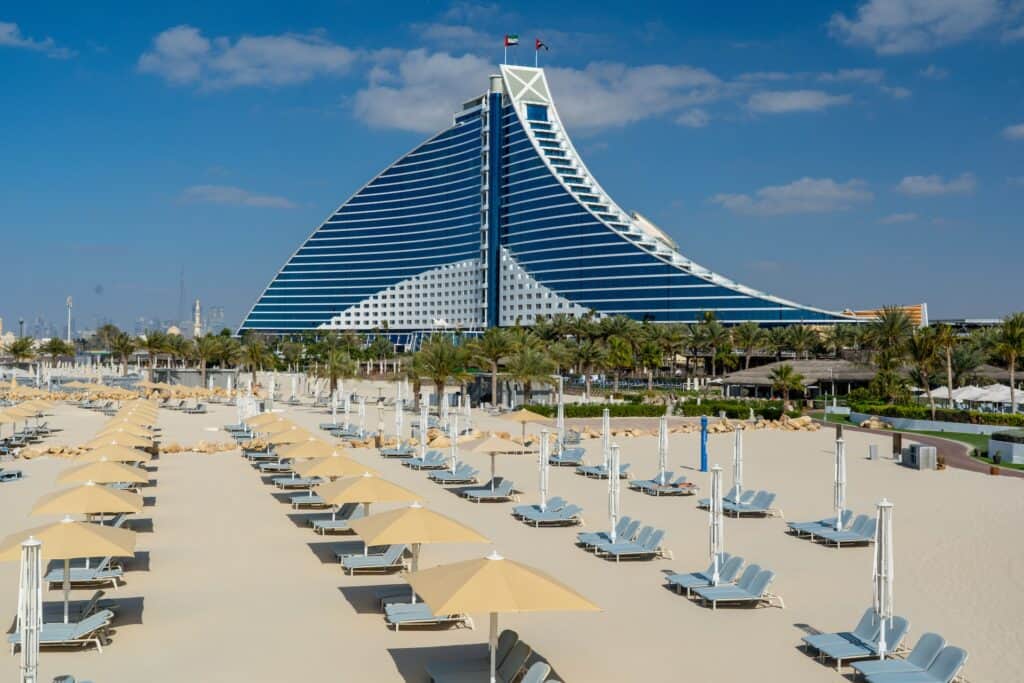
If you are looking for a sunscreen that can provide long-lasting protection, there are several options that can provide 8 hours or more of coverage. These sunscreens are a great choice for those who spend a lot of time outdoors, especially in hot and sunny conditions.
Three of the best sunscreens that stay for 8 hours or more include:
- ALTRUIST. Dermatologist Sunscreen SPF 50: This non-greasy sunscreen provides broad-spectrum protection against UVA and UVB rays, and is water-resistant for up to 80 minutes. It is also non-comedogenic and free from fragrances, making it a great choice for sensitive skin.
- Elizabeth Arden Eight Hour Cream Targeted Sun Defense Stick SPF50: This convenient, easy-to-apply stick provides high protection against the sun’s harmful rays, and is water-resistant for up to 80 minutes. It is formulated with antioxidants and vitamins to nourish and protect the skin.
- Garnier Ambre Solaire Hydra 24 Hour Protect Hydrating Protection Lotion SPF50: This lightweight, hydrating lotion provides long-lasting protection against UVA and UVB rays, and is water-resistant for up to 80 minutes. It is formulated with hydrating ingredients to keep your skin soft and moisturized throughout the day.
Best cruelty free sunscreen for Dubai
Cruelty-free sunscreens are becoming increasingly popular, and there are many options available for those looking to protect their skin while also avoiding products that are tested on animals.
- Bondi Sands SPF 50+: A popular choice among sun-seekers, this sunscreen is cruelty-free and provides broad-spectrum protection against UVA and UVB rays.
- Sun Bum Original SPF 30 Suncream Lotion: Infused with natural ingredients like coconut oil and banana extract, this sunscreen is gentle on the skin and protects against sunburns while keeping skin hydrated.
- The Every Single Day SPF50: This vegan and cruelty-free sunscreen is perfect for everyday use, providing broad-spectrum protection against UV rays and protecting your skin from harmful free radicals.
How often to reapply sunscreen
Reapplying sunscreen is a crucial step in protecting your skin from the damaging effects of the sun. The frequency of reapplication depends on several factors, including the SPF of your sunscreen, the length of time you spend in the sun, and the level of sun exposure you receive.
The general rule of thumb is to reapply sunscreen every two hours, regardless of the SPF. This is because even the highest SPF sunscreens begin to lose their effectiveness over time, especially if you are sweating or swimming.
For those spending time in the sun for extended periods, it is best to reapply sunscreen every hour or so. If you are engaging in water activities, it is also important to reapply sunscreen after towelling off, as this will help to replenish any protection that may have been lost due to water exposure.
Additionally, it is important to reapply sunscreen after heavy sweating, as this can also cause the sunscreen to lose its effectiveness. Applying a generous amount of sunscreen to all exposed areas of skin, and taking the time to reapply as needed, is the best way to ensure that your skin is protected from the sun’s harmful rays.
Does sunscreen expire?
Yes, sunscreen does have an expiration date. Sunscreen products typically have a shelf life of two to three years, after which the effectiveness of the ingredients can start to deteriorate. This means that the sunscreen may no longer provide the same level of protection against the sun’s harmful UV rays. It’s important to check the expiration date on the sunscreen bottle and replace it if it has expired or if it is close to its expiration date. Additionally, it’s recommended to store sunscreen in a cool, dry place, away from direct sunlight, as excessive heat and sunlight can also impact the effectiveness of the product. To ensure that your skin is protected from the sun, it’s best to use fresh, up-to-date sunscreen.
What SPF sunscreen do I need in Dubai
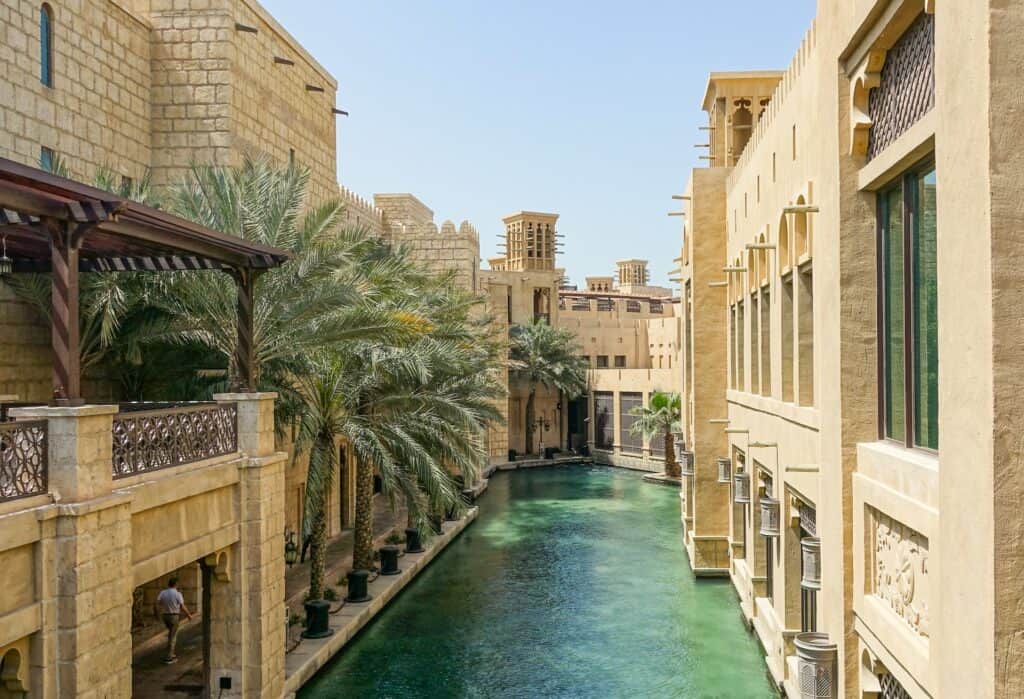
In Dubai, it is recommended to use an SPF of 50 or higher during the summer months, when the sun is at its strongest. This will provide the best protection against the sun’s harmful UV rays, which can cause skin damage, sunburn, and increase the risk of skin cancer. During the winter months, when the sun is not as intense, an SPF of 30 may be sufficient.
However, it’s always better to err on the side of caution, especially if you have fair skin or a history of skin cancer in the family. Using a higher SPF sunscreen will provide more protection, and it’s worth remembering that no SPF is 100% effective. Reapplying sunscreen every two hours, especially after sweating, swimming, or towelling off, will also help ensure that your skin is protected throughout the day. When choosing a sunscreen, it’s important to look for one that provides broad-spectrum protection against UVA and UVB rays.
How much sunscreen do you need to apply in Dubai?
The amount of sunscreen needed depends on several factors, including your skin type, the SPF of the sunscreen, and the length of time you will be exposed to the sun. On average, it’s recommended to use about 30ml, or a shot glass full, of sunscreen for every application. This amount should be enough to cover your face and neck, as well as any other exposed skin.
It’s important to apply sunscreen liberally and evenly to all exposed skin, including the neck, ears, and the tops of your feet. Be sure to pay extra attention to areas that are prone to burning, such as the nose, shoulders, and back. Remember to reapply sunscreen every two hours, or immediately after sweating, swimming, or towelling off, to ensure that your skin is protected throughout the day.
Using the right amount of sunscreen will help provide maximum protection against the sun’s harmful UV rays and prevent skin damage, sunburn, and skin cancer. In Dubai, where the sun can be intense, it’s essential to use a high-quality sunscreen and apply it properly to protect your skin from the sun’s harmful effects.
How much sunscreen do you need to take to Dubai for a week
The amount of sunscreen you need to take to Dubai for a week will depend on several factors, including your skin type, the SPF of the sunscreen, the length of time you will be exposed to the sun each day, and the number of people using the sunscreen.
As a rough estimate, if you are using a sunscreen with an SPF of 50 and applying it once a day, a 200ml to 250 oz. bottle should be enough for one person for one week. However, if you are spending long hours in the sun, sweating, swimming, or towelling off, you may need to reapply more frequently, and therefore you may need to bring an additional bottle of sunscreen.
It’s a good idea to pack a separate bottle of sunscreen for your face, as the skin on your face is often more sensitive than the rest of your body. You may also want to consider taking a separate bottle of sunscreen for children, if you are traveling with kids, as they may need a lower SPF or a specialized children’s sunscreen.
Will sunscreen stop you from tanning?
Using sunscreen will reduce the amount of tanning that occurs, but it will not completely prevent it. Sunscreen works by blocking out the harmful UV rays that cause skin damage, including tanning. The higher the SPF, the more protection you will receive. While using a low SPF sunscreen may still allow for some tanning, it is important to remember that excessive exposure to UV rays can increase the risk of skin damage and skin cancer. If you want to achieve a tan while using sunscreen, it is recommended to choose a lower SPF and gradually build up your exposure time to the sun, while still reapplying sunscreen regularly.
Does p20 sunscreen work?
Yes, P20 sunscreen can be effective in protecting your skin from the harmful effects of UV rays. P20 refers to a specific brand of sunscreen that has a unique formula and application process. The product is designed to provide long-lasting protection and can be reapplied every 10 hours without the need to completely remove and reapply, making it convenient for daily use. P20 sunscreen is often marketed as having a high SPF, providing protection against both UVA and UVB rays, and being water-resistant. However, as with any sunscreen, it is important to choose a product that is suitable for your skin type and to apply it correctly and regularly for maximum protection.
We used P20 a lot when we lived in Dubai.
Sunscreen alternatives for Dubai
Sunscreen alternatives include clothing, shade, and timing. Clothing that covers the skin, such as long-sleeved shirts and pants, can provide protection from the sun’s UV rays. Seeking shade, especially during peak sun hours, can also reduce exposure to the sun. Timing outdoor activities, such as exercise and recreation, for early morning or late afternoon when the sun is not as intense, can also minimize exposure to harmful UV rays.
However, it’s important to note that these alternatives are not a substitute for sunscreen and should be used in conjunction with proper sun protection measures.
How often to apply factor 50
The frequency at which you need to apply sunscreen with a SPF of 50 depends on various factors such as your skin type, the weather, and your level of sun exposure. As a general rule, it is recommended to reapply sunscreen every 2 hours when you are outside, especially if you are sweating or swimming. Additionally, it’s important to apply enough sunscreen to cover your skin, about a shot glass worth for the average adult. To ensure maximum protection, it is best to reapply after towel drying or sweating, and to choose water-resistant and broad-spectrum sunscreens. Keep in mind that using a high SPF sunscreen does not give you a license to stay in the sun for longer periods of time, so it’s important to take other sun protection measures, such as seeking shade and wearing protective clothing, as well.
Can sunscreen clear skin
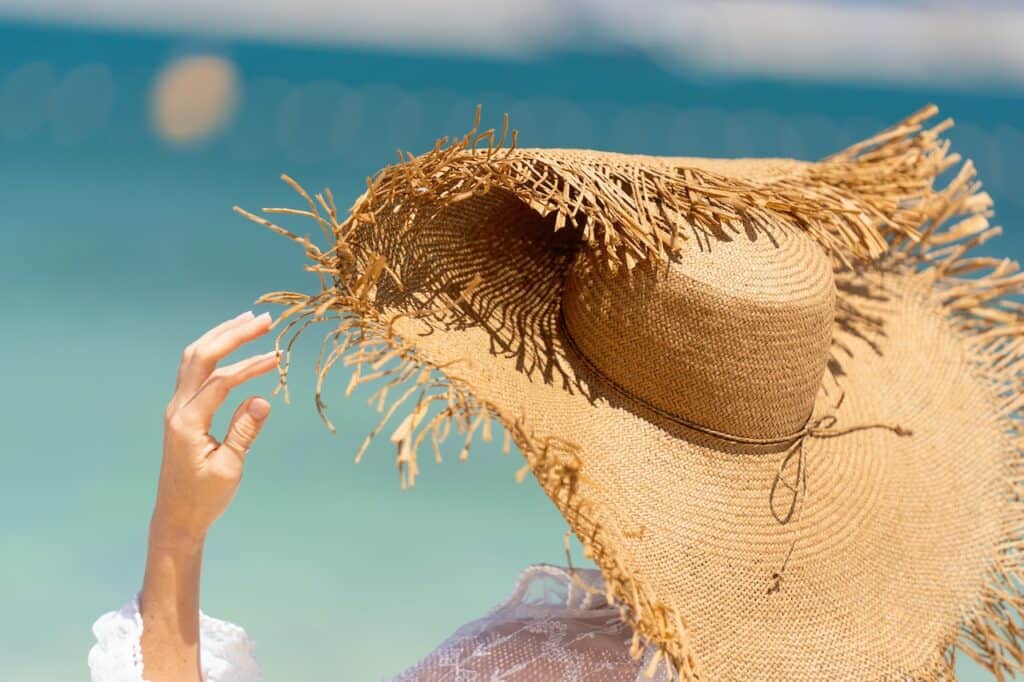
Sunscreen does not inherently have the ability to clear skin. However, protecting your skin from harmful UV rays can prevent sunburn and damage that can contribute to skin problems such as hyperpigmentation, premature aging, and skin cancer. Using a broad-spectrum sunscreen that is also non-comedogenic can help prevent the clogging of pores, which can cause breakouts, and can also hydrate your skin, which can improve its overall appearance. Additionally, incorporating sun protection into your daily skincare routine can help prevent skin damage and promote skin health, which can lead to clearer, more radiant skin over time.
Can you sunbathe in Dubai
Yes, you can sunbathe in Dubai, but it is important to protect your skin from the strong sun exposure. Dubai has a hot and dry climate, with high UV levels year-round, so it is essential to use a high SPF sunscreen and to limit your sun exposure, especially during the hottest times of the day (from 11 AM to 3 PM). Sunbathing can cause sunburn and other skin damage, so it is important to be mindful of your skin’s sensitivity to the sun and to take necessary precautions to protect it. Additionally, it is important to follow local regulations regarding public behaviour, as some forms of sunbathing may not be permitted in certain areas.
Will sunscreen protect you from sun burn?
Sunscreen can help protect your skin from sunburn by reducing the amount of UV radiation that reaches your skin. The Sun Protection Factor (SPF) indicates how effectively a sunscreen will protect your skin from sunburn. The higher the SPF, the more protection you will receive. However, it’s important to note that no sunscreen provides complete protection and sunburn can still occur, especially if you don’t apply enough or frequently enough, or if you spend too much time in the sun. It’s always a good idea to take additional precautions, such as wearing protective clothing, seeking shade, and avoiding prolonged sun exposure, especially during peak hours.
If you happen to get burned, please use aftersun to relieve both pain and burn symptoms.
Is Nivea sunscreen bad?
No. Nivea sunscreen is not bad. Nivea is a well-known and established brand in the skincare industry, and they offer a wide range of sunscreens with various SPF levels and formulas to suit different skin types and preferences. The effectiveness of a particular Nivea sunscreen product depends on factors such as the SPF level, application amount and frequency, and individual skin sensitivity. It is recommended to read the label, follow the usage instructions, and consult with a dermatologist if you have any concerns.
Will sunscreen work if expired?
Sunscreen that has expired may not be as effective in providing protection against the sun’s harmful rays. Expired sunscreen may have lost some of its potency and may not provide adequate protection against sunburn, skin damage, and skin cancer. It is recommended to check the expiration date before using sunscreen and to replace it if it has passed its expiration date. Using expired sunscreen may result in inadequate protection, making it important to always use fresh, properly stored sunscreen for optimal sun protection.
When is sunscreen necessary
Sunscreen is necessary when you will be exposed to the sun’s UV rays, which can damage your skin and increase the risk of skin cancer. It is recommended to use sunscreen all year round, but especially during the warmer months and when spending extended periods of time outdoors. Sunscreen should be applied to all exposed skin and reapplied every 2 hours, or immediately after swimming or excessive sweating.
Are sunscreens dangerous?
No, sunscreens are not inherently dangerous. In fact, the opposite is true! When used as directed, sunscreens can help protect the skin from harmful UV radiation and reduce the risk of skin cancer and other skin damage. However, some people may have skin reactions to certain ingredients in sunscreens, so it’s important to patch test and choose a sunscreen that is appropriate for your skin type and needs. Additionally, some sunscreens may contain chemicals that have been shown to have negative environmental effects, so it’s important to choose a sunscreen that aligns with your personal values and beliefs.
Does sunscreen contain bleach?
No, sunscreen does not typically contain bleach. Sunscreen ingredients typically include active ingredients that provide sun protection and inactive ingredients that help to provide texture, stability, and skin moisturization. Bleach is not a common ingredient in sunscreens. If you have concerns about the ingredients in your sunscreen, you should read the label and consult a dermatologist.
Can you use sunscreen during pregnancy
Yes, it is safe for most women to use sunscreen during pregnancy. Sunscreen can help protect against the harmful effects of the sun and reduce the risk of skin damage and skin cancer. It is recommended to use a broad-spectrum sunscreen with at least SPF 30 and to reapply it every 2 hours when exposed to the sun. It is also recommended to consult a doctor or dermatologist before using any new skin care product during pregnancy.
Lieze Neven is a globetrotting travel writer and expat currently based in Nepal. With a passion for exploration, she has lived in Dubai, the UK, and Belgium, alongside her international teacher husband. Her parents live in France and she tries to visit Paris at least once a year. Together, they travel the world looking for the best hotels, experiences and food locations have to offer!

That’s quite an informative post to about sun screen to use while travelling to Dubai.
Thank you Ritu!
planning a trip to Dubai next year! Thanks for the sunscreen tips!
Nice! Let me know if you need tips!
This is really useful info because honestly I have no idea which sunscreen I would buy!
I had the same problem before I moved!
Always caring for the skin and with a good product.
Yes! It is very important!
These are awesome choices for sunscreen. Thanks for this. I will keep this in mind.
Thank you Adriana
This is great! I have learned from traveling to different parts of the world you definitely need different sunscreen for the places you go!
Thank you Ashli!
I went to Dubai once,I have never felt my skin being burned like I were directly next to a red hot fire. luckily, I had SPF 50 so although the heat was terrible, I did not suffer sunburn.
Hahaha yes soooo true! The weather was so nice during the winter, but now it’s very warm again!
I have never heard of this brand, but it sounds great. Sunscreen is always a must, especially when traveling!
Yes sunscreen is very important!
Nice tips for anyone who is looking to take some vacation time at Dubai!
Thank you!
Thanks for sharing the choices and tips. It would be useful for travelers.
Thank you!
I don’t know when will go to Dubai, but this is a very good tips to share, thanks 🙏
OMG, this is such an awesome, I’m glad I read it. I’ve been planning to get a new sunscreen for everyday use and here is your post. I can now easily decide on which one to get.
Pingback: How to visit Jebel Jais from Dubai or Abu Dhabi - Glitter Rebel
I love Sun Bum! Would you recommend their normal sunscreen for Dubai?
Hi Tilly
As long as the SPF is high enough and the sunscreen is long-lasting it should be fine.
Planning a trip to Dubai soon and I’ve been reading up on sunscreens. Seems like the heat there is no joke! Any recommendations for a sunscreen that’s good for both the face and body, won’t leave white residue, and is suitable for sensitive skin?
For Dubai, try Neutrogena Ultra Sheer SPF 70. It’s good for sensitive skin, doesn’t leave a white cast, and works for both face and body. Also, NIVEA UV Face Shine Control SPF50 is great for the face, especially if you have oily skin.